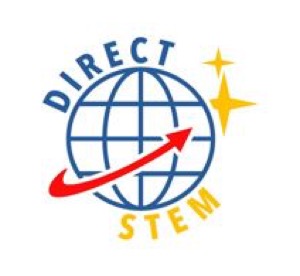
More than 70 undergraduate and graduate students participated in the XSEDE/DIRECT-STEM training workshops at Cal State LA.
The need for more young people in STEM careers in a growing concern for the HPC community. Along these lines, more than 70 undergraduate and graduate students participated in the recent XSEDE/DIRECT-STEM training workshops at Cal State LA. The year-long program enables undergraduate and graduate students to participate in a series of voluntary Saturday workshops.
We instruct the students in scientific computing and data science,” said Paul Nerenberg, assistant professor of physics and biology and research advisor for the DIRECT-STEM program funded by NASA. “These are going to be core skills for them in their careers no matter what they do.”
Students from a variety of majors participate, including math, engineering, chemistry, physics, geosciences, and even art. “The students believe that computer programming will be more important in the future than it is today. But they might not know how to get started,” he continued.
Enter XSEDE, the Extreme Science and Engineering Discovery Environment funded by the National Science Foundation.
Linda Akli had been thinking of how to strengthen XSEDE’s engagement with Hispanic-serving institutions. Akli is the manager of the XSEDE Broadening Participation program and assistant director of Training, Education, and Outreach for the Southeastern Universities Research Association.
After researching schools, Akli and Rosie Gomez of the Texas Advanced Computing Center (TACC) made a visit to Cal State LA to talk with leadership about partnering with XSEDE. They learned that the DIRECT-STEM program focused primarily on math concepts in an applied context, and that they had just begun teaching programming in Python, a computer language.
From Nerenberg’s perspective, the XSEDE Broadening Participation effort lined up well with the objectives of the DIRECT-STEM program. “Both are focused on diversifying the STEM workforce and promoting participation of students from historically underrepresented groups,” he said.
“It sounded like an opportunity for us both,” said Akli.
After much planning between the two programs to find the best sequence of training events, in fall 2018 Nerenberg and Cal State LA professor of mathematics Daphne Liu taught two workshops that involved both analytic math and computational math exercises using Python. They also taught Introduction to Scientific Computing and the basics of Python to lay the groundwork for the XSEDE component.
In spring 2019, the XSEDE trainers taught Introduction to Linux/Unix and Advanced Python. Their training also included hands-on access to the Stampede2 supercomputer, one of the most powerful systems in the world.
It’s something none of the students probably would have started our program thinking they would do, especially since we don’t have a supercomputing facility on campus. And it’s not a skill they would have necessarily ever considered learning. From my perspective, it’s a really unique opportunity for students, much more so than anything else we do,” Nerenberg said.
 Mayra Molina is finishing her final semester at Mt. San Antonio College and will be transferring to Cal State LA this fall as a mechanical engineering major. While preparing for her transfer, she started searching for programs that would help her develop skills, network, and get exposure to what is required of a research student.
Mayra Molina is finishing her final semester at Mt. San Antonio College and will be transferring to Cal State LA this fall as a mechanical engineering major. While preparing for her transfer, she started searching for programs that would help her develop skills, network, and get exposure to what is required of a research student.
“That was when I came across the NASA DIRECT-STEM program at Cal State LA,” Molina said. “It was the only program I found that allowed community college students to participate in conjunction with current Cal State LA students.”
Through the program, I gained confidence, skills, and I networked with people I would otherwise not have access to,” Molina said. “I now have a better idea of what will be required of me during graduate school, and I feel like I could be successful. It’s great that undergraduates have the opportunity to participate. It’s been an invaluable experience.”
Computer programming and data analysis skills are becoming prerequisites for students pursuing research opportunities in science and engineering, according to Nerenberg. “I use these skills every day to accomplish my research,” he said. “The students doing research with me — and likewise other faculty in science and engineering — need to be well-versed in them, too.”
The training organizers have already met to discuss how the workshops will be structured for 2020. Nerenberg said they will offer more workshops next year as compared to this year. “We’re looking at this as a long-term partnership and hope to keep doing it for many years.”
Over the last couple of years Cal State LA has emerged as one of the top universities in the country for upward mobility, bringing students from the lowest quintile (20%) of income to the highest quintile.
This is an engine for economic mobility which changes people’s communities,” Nerenberg said. “When our students are able to obtain education and go on to be successful in their careers, it positively impacts the communities from which they came.”
The next DIRECT-STEM/XSEDE offering at Cal State LA will take place in spring 2020.
Source: XSEDE



